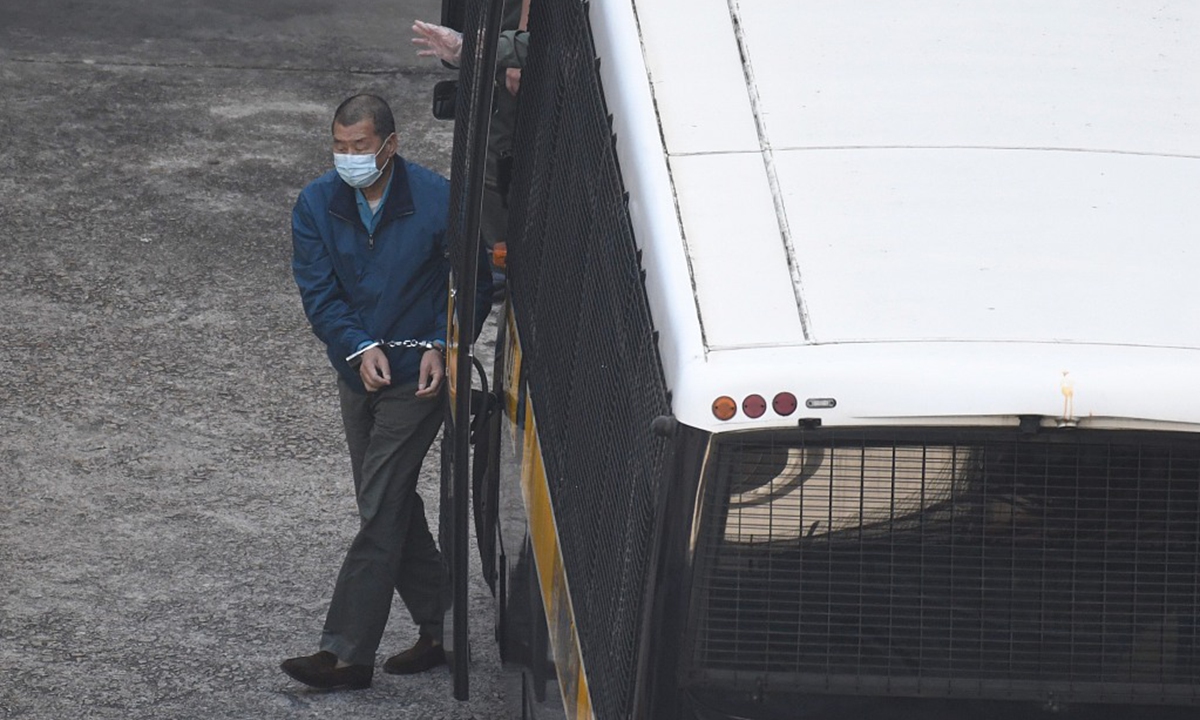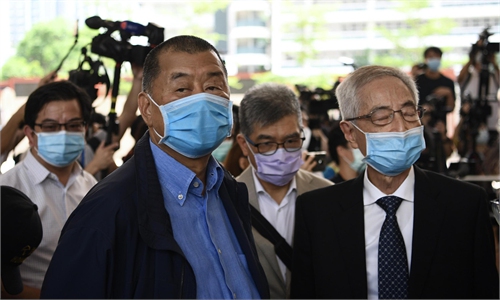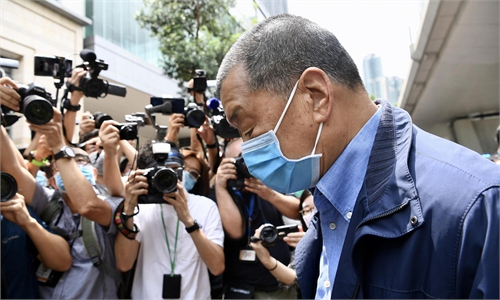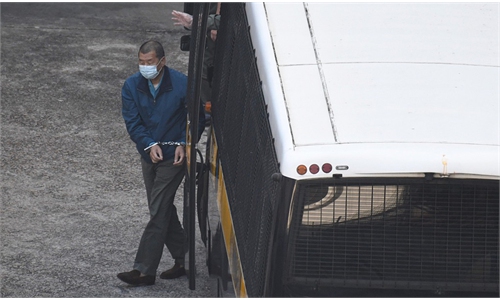
Jimmy Lai Photo: VCG
As the detained anti-government figure and secessionist Jimmy Lai appeared before the Court of Final Appeal on Monday for his bail hearing for violating the national security law for Hong Kong, legal experts considered the case as a test of how Hong Kong's legal system interprets bail conditions under the national security law.
Lai arrived at the Court of Final Appeal in a prison van on Monday morning, according to local media reports in Hong Kong. The court has already revoked the bail order of Lai on December 31 after Lai had been granted bail on December 23 by the Hong Kong High Court.
The court adjourned on Monday, and Lai was placed in custody, according to local media reports.
Lai was formally charged under the national security law for Hong Kong for colluding with foreign forces to endanger national security on December 11, which is widely seen as a high-profile case. The 73-year-old has been considered a "modern-day traitor" for his notorious acts and deeds in instigating one of the most violent and chaotic riots in the city in 2019.
A number of local residents in Hong Kong also showed up outside the courtroom on Monday morning, urging to take Lai's case seriously, and said local legal authorities in Hong Kong should transfer it to mainland authorities given the seriousness of the case, local media on.cc reported.
The Hong Kong media tycoon faces a series of criminal charges including fraud, collusion with foreign forces to endanger national security, and severely interrupting social order.
Article 42 of the national security law for Hong Kong states that no bail shall be granted to a criminal suspect or defendant unless the judge has sufficient grounds for believing that the criminal suspect or defendant will not continue to commit acts endangering national security.
A representative of the Department of Justice of Hong Kong argued that when considering the case, the intent and aim of drafting the national security law for Hong Kong should be understood first. Article 42 states the precondition of no bail, according to local media reports.
"As the Court of Final Appeal represents Hong Kong's judicial organ with the highest authority, which will touch on how the bail conditions of the national security law for Hong Kong is interpreted within the common law system of Hong Kong," Tian Feilong, an associate professor at Beihang University in Beijing and member of Beijing-based Chinese Association of Hong Kong and Macao Studies, told the Global Times on Monday.
The national security law for Hong Kong was established with a clause that specifies the prudent bail principle, that is, no bail is granted in principle in violation of the law otherwise the judge needs to show proof and make sure the suspect won't continue to engage in activities endangering national security, Tian noted.
The case was handled by five designated judges handling national security related cases, including the new chief justice of the Court of Final Appeal Andrew Cheung Kui-nung, who was sworn in on January 11.
"The purpose of Article 42 is to impose stringent bail requirements to prevent the suspect, Jimmy Lai in this case, from continuing to breach the national security law, especially in collaboration with foreign powers for the purpose of imposing sanctions on our governments," Lawrence Ma, barrister and chairman at Hong Kong Legal Exchange Foundation, told the Global Times on Monday.
How the court will rule on the case will also be a major gauge of whether the judges interpret the Article 42 of the national security law for Hong Kong correctly, some legal experts said. "It is important that they correctly understand the national security law in context," otherwise an incorrect ruling may trigger a legal interpretation of the nation's top legislature, Ma added.




